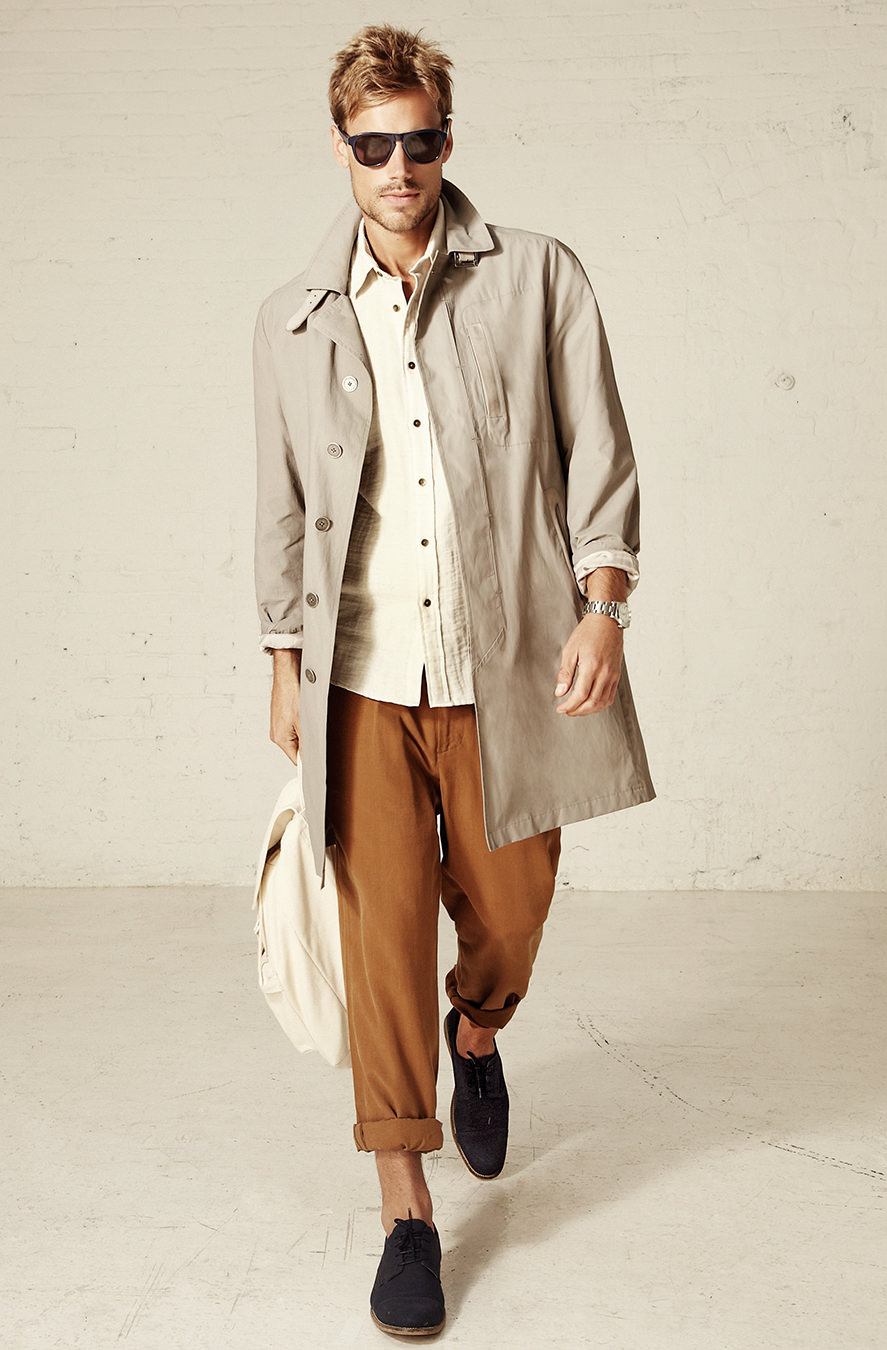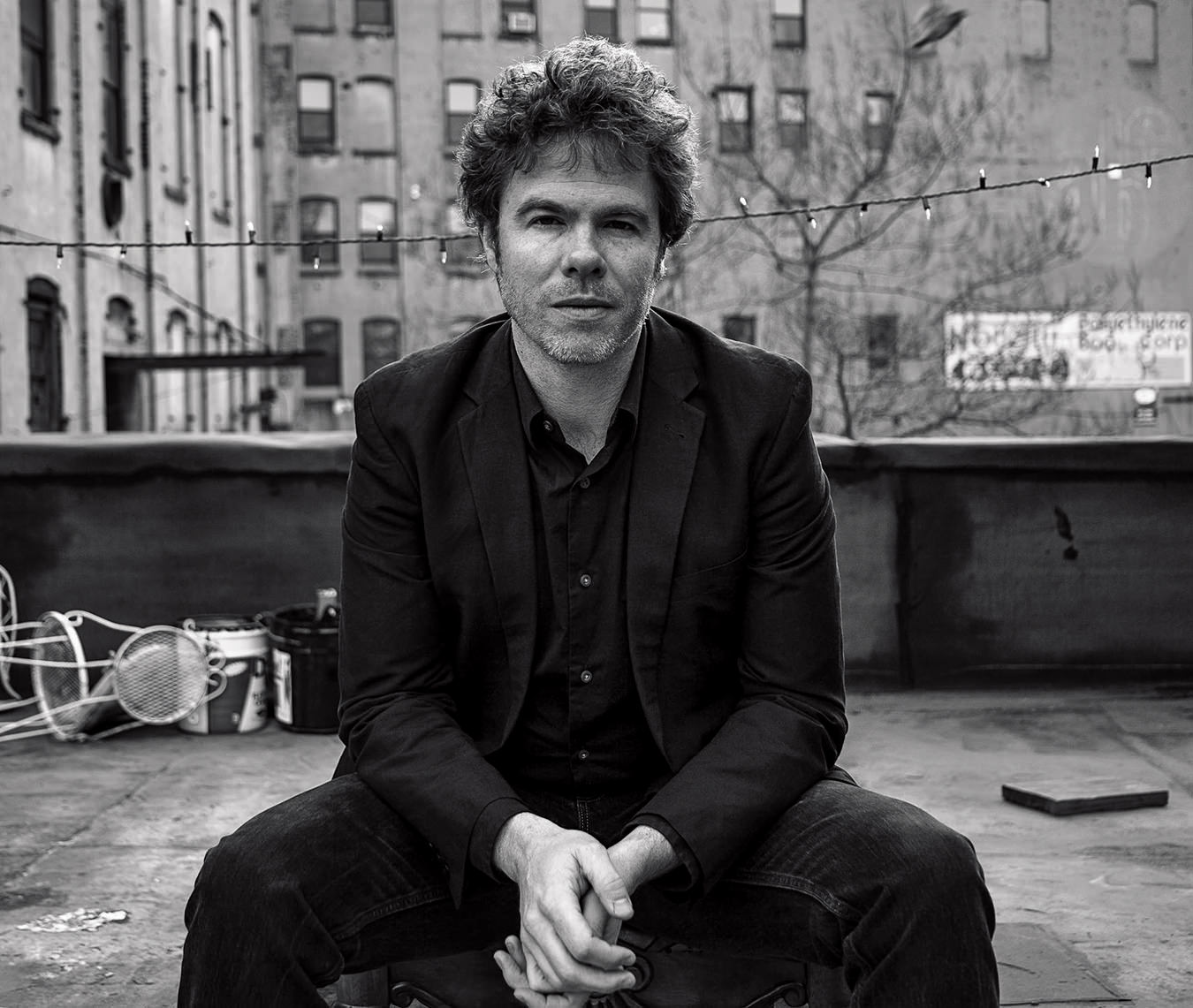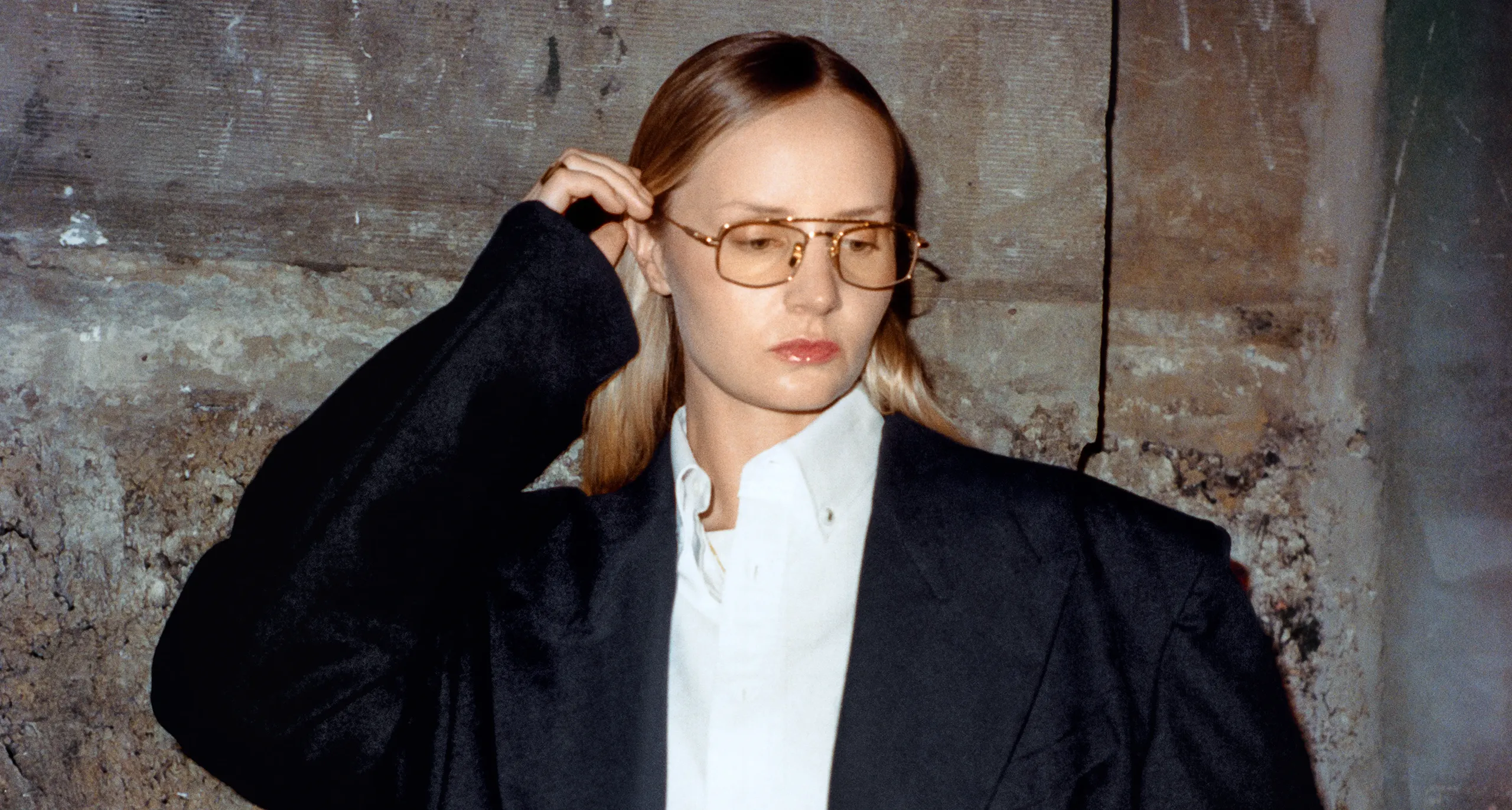
Charlotte Day Wilson Is in Her Multicolour Era
With a voice that resonates like memory and lyrics that cut with quiet power, Charlotte Day Wilson is carving her own space in modern soul—introspective, uncompromising, and unmistakably her own.
Charlotte Day Wilson isn’t interested in doing the most. She’s just focused on doing what matters. It’s the philosophy behind Tutto Panino, the unpretentious Italian sandwich shop the Toronto R&B innovator recently opened in her hometown. On a scorching summer afternoon, Wilson is hard at work getting the place off the ground. “We’re not trying to reinvent the wheel. We’re also not trying to make trendy sandwiches,” the 32-year-old says of the shop she co-founded with her friends Kaitlyn Lasagna, Andi Larocca, and Paul Liliani. “We’re just trying to make food that is reasonably priced and not going to make you feel sick after eating. We’re trying to go back to basics. It’s for the nonnas. It’s not for TikTok.”
Going back to basics also describes how the singer, producer, and multi-instrumentalist is doing in the latest chapter in her life. She’s not chasing virality, but investing in what feels grounded, nourishing, and built to last.
Just as her career is hitting new heights—she snagged a Grammy nomination for her soul-baring sophomore album Cyan Blue, has racked up six Juno nominations, and is helping define the Toronto sound while amassing a global following—Wilson is simultaneously rethinking what success really means. She’s not stepping away from the studio. But she is stepping into something broader, making room for a fuller version of herself beyond the music industry machine.
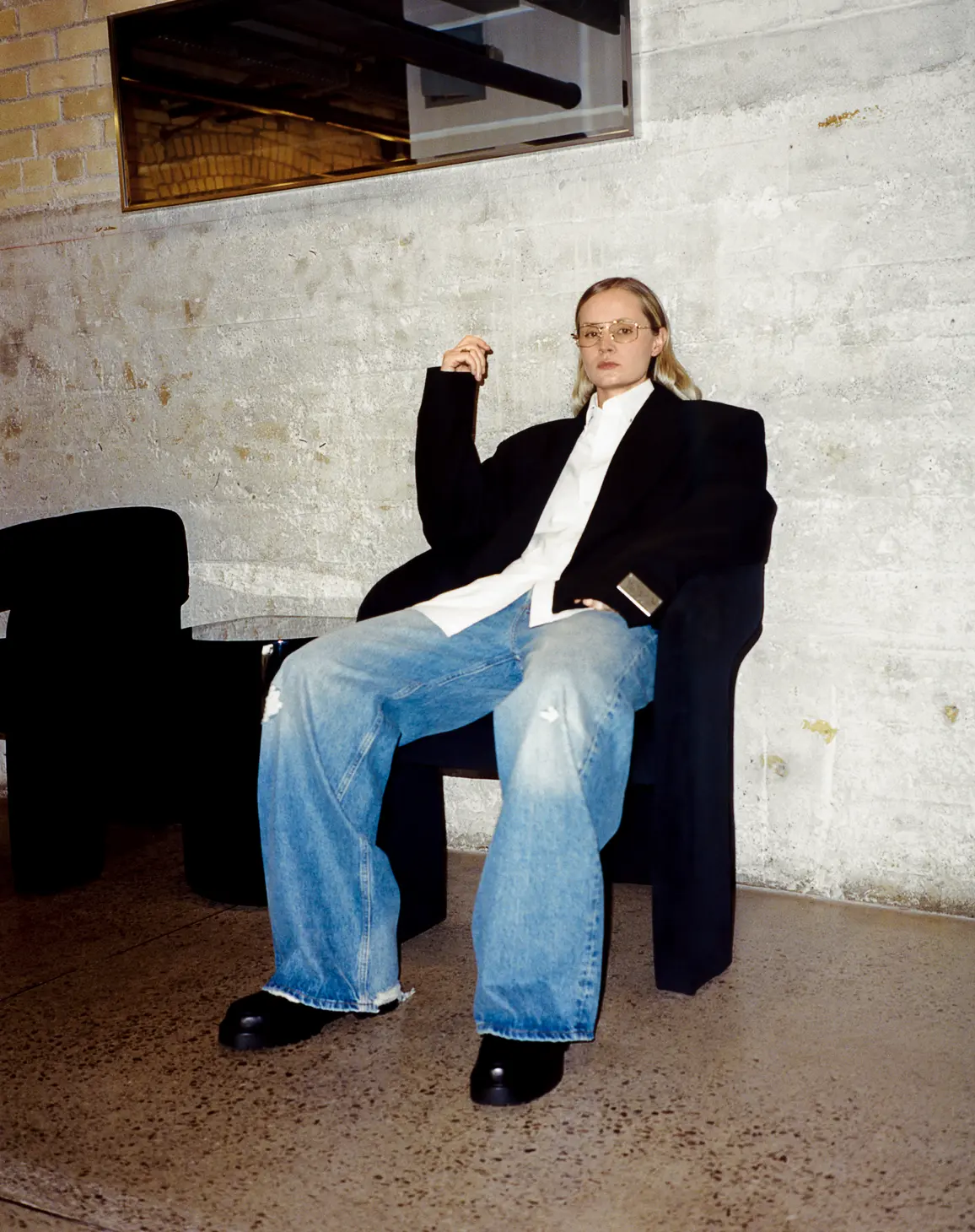
Vaquera blazer; Hommegirls shirt available at Absolutely Fabrics, Toronto; Citizens of Humanity jeans available at Holt Renfrew; Hermès shoes; Cutler and Gross eyewear; Tiffany & Co. Elsa Peretti bone ring.
“I think sometimes when you focus so much energy into marketing yourself as an artist, you can lose that sense of pure expression that got you there in the first place,” the soft-spoken Wilson says. “I’m also super aware of how fleeting the music industry can be sometimes, so I’ve never wanted it to be the only thing that I rely on financially and for my own self-worth and my career. There are so many different ways to exist within the music industry, but there are times where I don’t want it to consume me.”
Building something outside of that ecosystem, like Tutto Panino, helps ease the pressure. “I figure developing other dimensions of professional life is a good way to alleviate that feeling of ‘Oh, I have to make albums now.’ Like, no. I don’t have to do anything I don’t want to do.”
Since breaking out with her 2016 single “Work”—a gospel-tinged R&B slow-burn that spotlights her low, velvety voice, as intimate as a late-night confession—Wilson has split her time between Toronto and Los Angeles. “I don’t love L.A.,” she admits. “So I’m spending as much time in Toronto as I can now.” Part of that pull away from Hollywood comes from a changing relationship with the spotlight—and a yearning for something that feels more centred. “To be completely honest, I think fame is a monster. It does very scary things to people, and I’ve seen too many people around me be consumed by it,” she says.
Wilson’s desire for balance is rooted in a childhood far less calm. Growing up in Toronto, she had “some struggles as a young person,” often feeling isolated and misunderstood. “I was closeted,” she says. “I didn’t know that I was closeted, but I had serious behavioural issues. I was just having a hard time.” Back then, music was a lifeline. She has a core memory of hearing Neil Young’s “The Needle and the Damage Done” as a teen. “I had smoked a bunch of weed and was lying on my bed, and I put the speakers on either side of my head. I just literally had a transformational moment listening to that music,” she recalls. “There’s something about being a confused young person and then listening to music. It was the thing that gave me purpose and comfort and that made life feel worth living.”
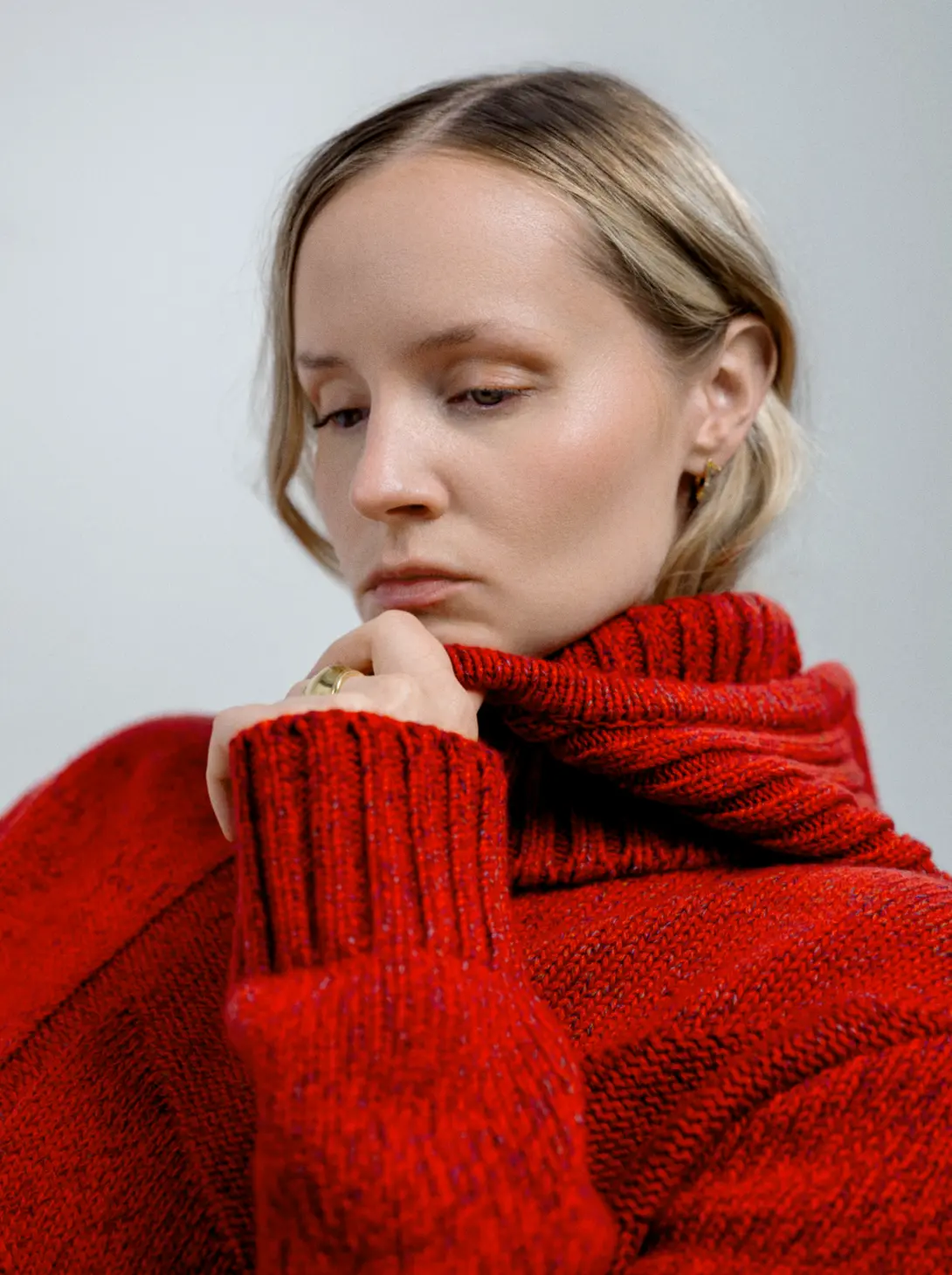
Hermès sweater; Tiffany & Co. jewellery including Elsa Peretti bone ring and Tiffany Titan by Pharrell Williams earrings.
A classically trained pianist who was then just starting to learn guitar, Wilson began experimenting with GarageBand on her MacBook, recording covers of the songs that moved her most. She’d been raised on classic Motown like Marvin Gaye and Stevie Wonder, her father often encouraging her to sing along with the harmonies during drives to hockey practice. As she got older, her tastes expanded, and she fell into the world of folk and indie.
“I always felt weird because no one around me was listening to the music that I was listening to. I grew up in a pretty white neighbourhood and I was listening to mostly Black music,” she says, noting she also started getting into experimental pop like Animal Collective later on.
That sonic push and pull would shape Wilson’s genre-defying sound. After moving to Halifax to study music—and briefly fronting the funk band The Wayo—she dropped out to forge her own path. An internship at the Toronto label Arts & Crafts led to key industry ties. On her 2016 EP CDW, she blends quiet R&B with shadowy pop for lovers in limbo, her smoky croons anchoring each track with an almost eerie calm.
Wilson soon became part of a rising wave of like-minded Toronto experimentalists—including Daniel Caesar, Jessie Reyez, and BadBadNotGood—who offered a softer, more nuanced counterpoint to the moody, male-dominated sound shaped by Drake and The Weeknd.
___
“I’m super aware of how fleeting the music industry can be sometimes, so I’ve never wanted it to be the only thing that I rely on financially and for my own self-worth. There are many different ways to exist within the music industry, but there are times where I don’t want it to consume me.” —Charlotte Day Wilson
At the time, Wilson was working part-time as a janitor in a church, wondering if her music would ever reach beyond her laptop. But the placement of “Work” in an Apple commercial changed everything. “I had never seen that kind of money before. I was like, ‘Oh shit! I can actually stop working as a janitor now. I can pursue this,’” she says.
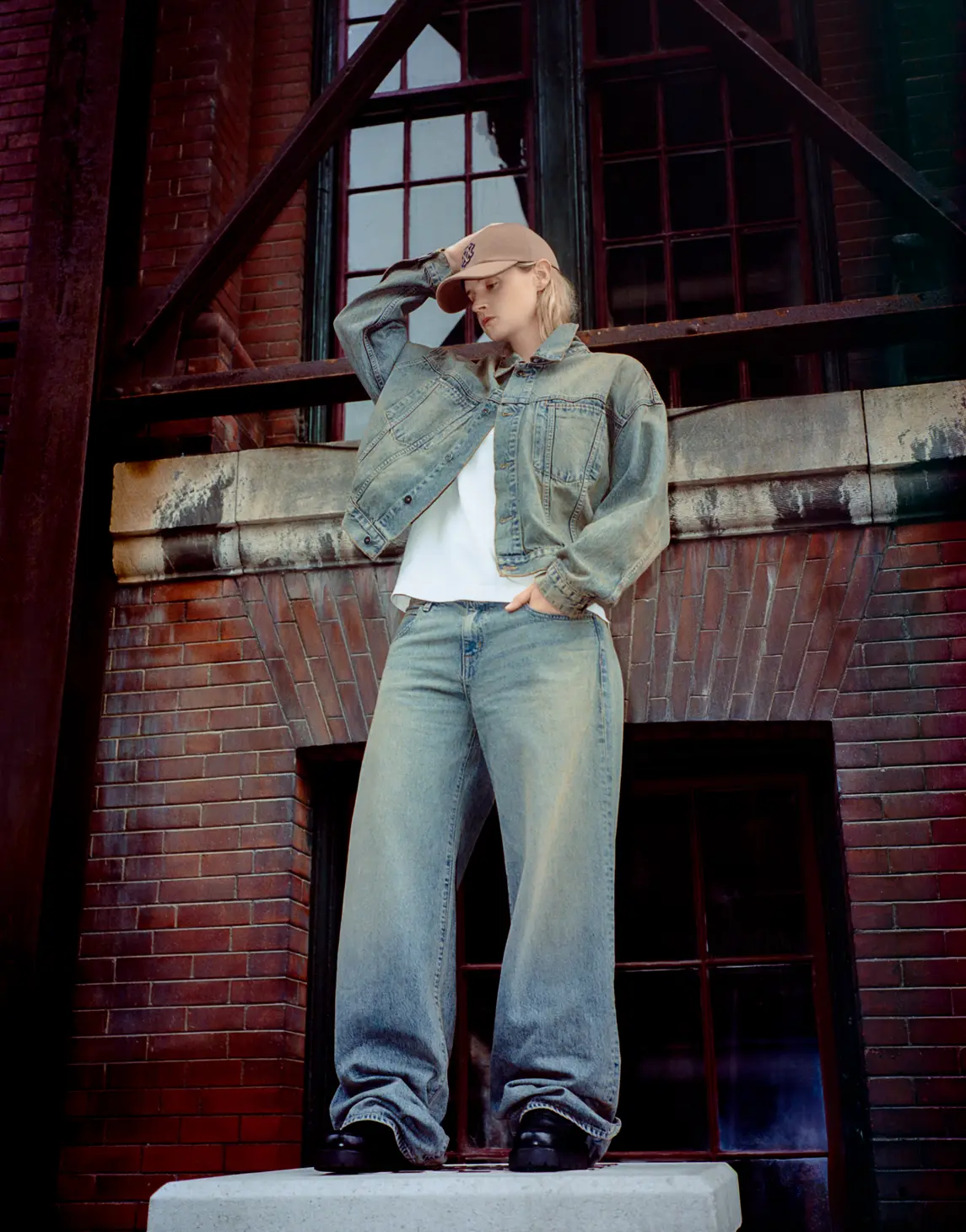
Slvrlake denim jacket and jeans, B Sides T-shirt, all available at Absolutely Fabrics, Toronto; Hermès ball cap and shoes.
The buzz built from there. After getting sampled by James Blake, playing the late-night U.S. talk show circuit, and featuring on several high-profile projects—from Caesar’s Freudian to Kaytranada’s 99.9%—Wilson dropped her debut album Alpha in 2021. The unapologetically romantic collection finds Wilson leaning fully into her identity as a queer woman, exploring love and longing with disarming clarity.
Though not as overtly, Wilson’s queerness was present in her music early on, something that she says brought challenges in a less accepting industry climate. “I was not wearing my identity in the music that I made as consciously,” she says. “It was just who I was, and then I was being asked a lot of questions about what it’s like to be a queer woman making music, and I was just like, ‘Well, it’s just who I am. I don’t have any other frame of reference.’ ”
She wasn’t just breaking moulds vocally. She was reshaping them as the architect of her own sound. “It was alienating being a woman producer at the time. It was something I felt like I had to fight to be recognized as,” she says. “Even today, I still have to remind people I produce the music. I’m not just writing it and singing it. I’m a producer.”
For the first decade of her career, Wilson earned a reputation for her near-obsessive approach to songcraft. But on Cyan Blue, she tried something different: going with the flow. Written and recorded over just a few months in collaboration with Toronto musician Jack Rochon, the album marks the first time Wilson didn’t self-produce or play most of the instruments on a project.
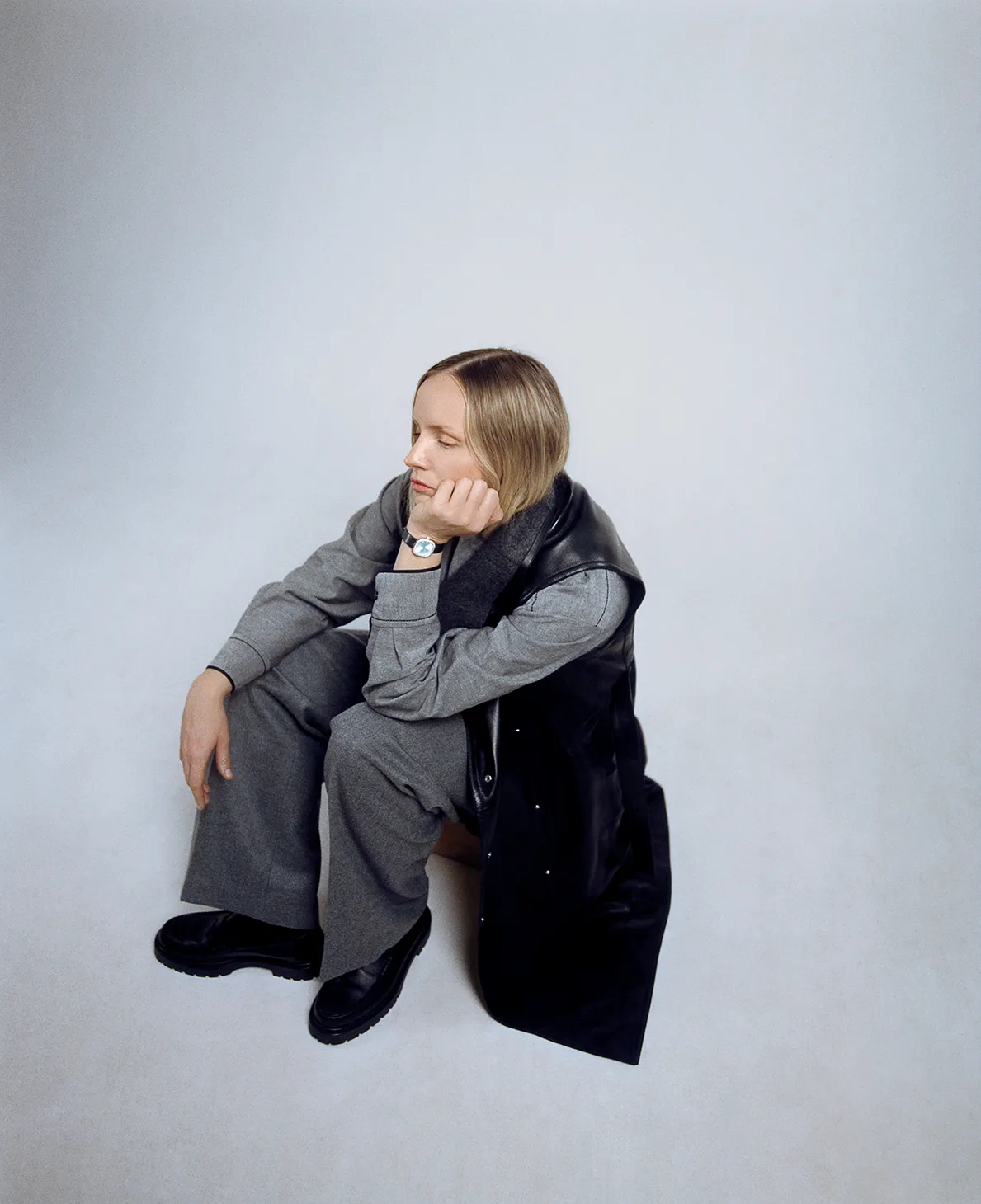
Hermès look; Tiffany & Co. Eternity cushion-shaped watch in white gold with diamonds.
The process was loose, intuitive, and as she later discovered, guided by her synesthesia, a neurological condition that causes her to experience sounds as colours. Specifically, it pulled her toward a soft, green-washed blue: a hue evoking the ache of heartbreak but also a glimmer of hope. “All my career, I’d been writing music that was yellow and orange,” she says.
___
“I didn’t even realize my synesthesia was informing the work—I just gravitated toward warmth. But with this project, all the decisions I was making started to feel and look blue. And I realized, holy shit, that’s a whole different era I’m entering. At some point, the music starts to show you what you’re really trying to say. And when it does, you just follow it.” —Charlotte Day Wilson
“New Day,” a sparse and stirring piano track, finds Wilson contemplating the complexities of queer parenthood, particularly the reality that only one parent can be biologically connected to a future child. “Something my partner and I definitely are in constant dialogue about is just, ‘How will we do this? What will it look like?’ Also, just the way it feels to know that not both of us will be genetically tied to this child—what are the things we need to do to prepare for that emotionally?”
Wilson finds herself thinking not just about what she’s creating, but what will remain when the song is over. “I want to pass down everything I’ve built—the knowledge, the spirit—to someone who can grow from it,” she says. “I don’t know if I’ll ever be genetically tied to a child, so the least I can do is build my name and have this child be part of my family history.”
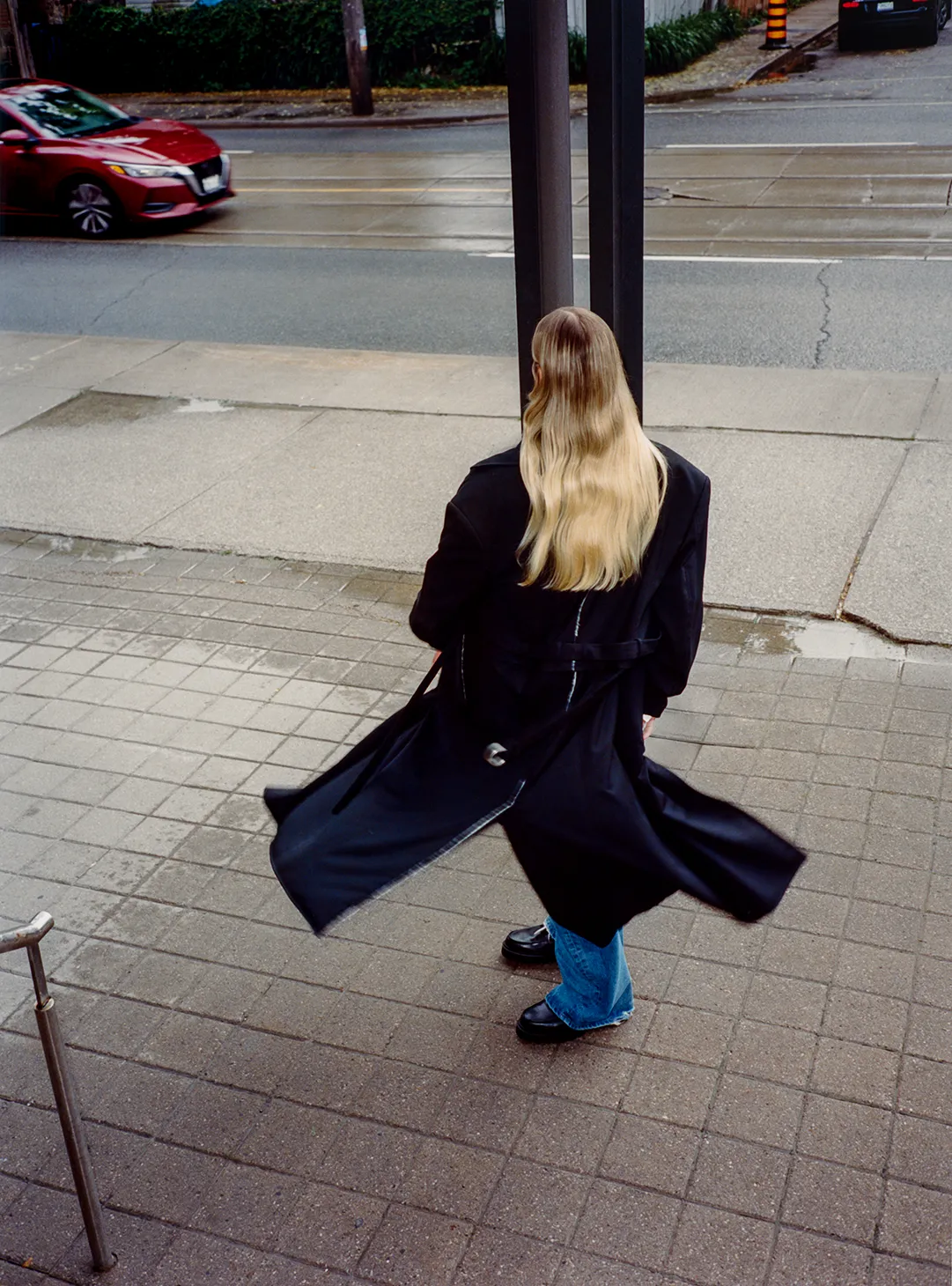
Re-Pull coat; Citizens of Humanity jeans available at Holt Renfrew; Hermès shoes.
This past winter, Wilson took the stage at Toronto’s iconic Roy Thomson Hall for Canada’s first-ever Red Bull Symphonic, a sweeping orchestral concert that reimagined her catalogue with cinematic grandeur. Featuring a guest appearance by the U.K. singer Sampha, the performance felt like a coronation—the kind of milestone that cements a legacy.
But since then, Wilson has been questioning what legacy truly means to her. “I’ve achieved more than I ever thought I would. Now I’m realizing my motivations are truly that I just want to be happy. I want to love the people around me, and I want the people around me to love me, and that’s really all it comes down to.”
She is approaching life the same way she’s started approaching songwriting: by trusting her instincts and letting them lead the way. She’s shed the weight of industry expectations and is charting her own course, on her own terms. “I don’t think I can tell you exactly where I’m going. I just know I’m going to continue making art, making sandwiches, trying new things,” she says. “The one thing I’m never going to do is force myself to do something I don’t feel passionate about.”
Right now, that passion is leading her back into the studio. She’s soon heading to Pine Island Studio on Ontario’s Stoney Lake, where she’ll be writing and recording new tunes. And she won’t be going it alone.
“The new project I have is very collaborative,” she says, a smile in her voice.
And the sound?
“It’s multicolour.”



